1. Not Knowing Your Macros
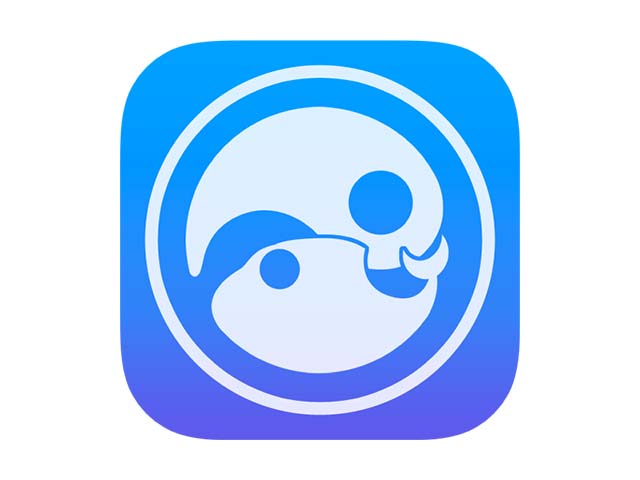
As you may know, calories do count, even on a low-carb, ketogenic diet. When you eat nutritious foods low in carbs, moderate in protein and high in fat, you will naturally eat less. For this reason, most of you won’t need to count calories on a keto diet.
However, just following a low-carb diet doesn’t guarantee weight loss. It helps to keep an eye on your fat intake. The closer you get to your target weight, the more important that becomes. Additionally, you need to ensure that you’re eating sufficient amount of protein to stay satiated and prevent muscle loss. You can find out your ideal macronutrients by using our keto calculator.
Only Focusing on Carbs
Most of you know that when following a ketogenic diet, you have to reduce the amount of carbohydrates you are eating. However, this doesn’t mean that the less carbs you eat, the more weight you are going to lose. In fact, I’ve seen many people following a close to zero-carb diet who were plateauing or even gaining weight. A very low-carb diet will simply not ensure fat loss!
Some people do well on a moderate carbohydrate diet while others see better results with a greater carb restriction. There is simply no one way for all and that’s why we need to embrace personalised nutrition in order to determine the best method for each individual.
I use non-starchy vegetables, nuts, seeds and berries, which are all high in fibre, thus total carbs. If you want to learn more about my approach, have a look at this post: Total Carbs or Net Carbs: What Really Counts?
Not Eating Adequate Protein
Eating sufficient protein is important, especially for those who are trying to lose weight. Adding some protein within the recommended limits may help you break through a long-lasting plateau. When you eat a high-protein meal, you body releases glucagon which counterbalances insulin and plays a significant role in satiety.
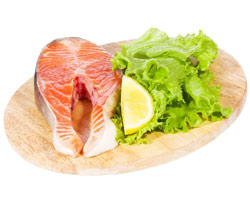
This doesn’t mean that you should overeat protein. Protein is not a particularly efficient fuel source and too much of it may raise your insulin levels. As you may know, high insulin levels will block fat burning. Also, not all protein sources are equal and some amino acids may cause greater insulin spikes. You don’t need to worry about a few extra grams of protein. Eating slightly more protein will not kick you out of ketosis because not all excess protein converts into glucose via gluconeogenesis.
Make sure you also include quality protein sources such fatty fish high in omega 3s. You can readmore about protein intake in this post.
Not Eating Adequate Fat
When following a ketogenic diet, you regulate your energy intake via fat, as protein and carbs remain more or less constant. It’s simple: if you want to lose body fat, you need to stay in calorie deficit. You should get most of your fats from omega-3 rich foods like fatty fish, and foods high in monounsaturated fatty acids such as avocados and extra virgin olive oil.
Also, make sure you get enough vitamin D. Chances are that even if you eat fatty fish and other foods high in vitamin D, you may be deficient in this vital micronutrient. I eat fish at least 3-4 times a week and I’m also taking cod liver oil. To learn more about counting macros, types of fat and your ideal fat intake on a ketogenic diet, read this post.
2. Avoiding Vegetables and Fiber
Non-starchy vegetables have their place in a healthy low-carb diet. There is no reason to avoid vegetables like broccoli, cauliflower, zucchini, bell peppers or fruits like avocado or berries. These foods are very high in micronutrients, low in carbs and won’t impair your weight loss efforts. So unless you have food sensitivities to nightshades or other vegetables, you should include them in your diet.
3. Obsessing Over Your Ketone Levels
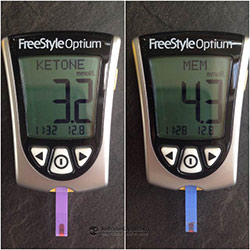
Just like many others, I don’t believe that a very low-carb ketogenic diet with high ketone levels is the best way to lose weight. Nutritional ketosis is achieved when your blood ketones are between 0.5 and 3.0 mM. Values higher than that have no additional benefits.
People ask this all the time: “… I have high ketone readings, so why am I not losing weight?”
It’s not just about carbs and ketones and you need toknow your macros. Many people don’t eat enough protein and overeat fat simply because they’ve been given the wrong advice.
4. Too Much Stress
Stress is a significant factor when it comes to weight loss. I know, it’s easy to say and difficult to do but try and have less stress. Here are a few tricks you can try:
- Try the Headspace App to relax and decrease your stress levels in just a few minutes a day. I’ve been using it myself!
- Too much exercise, especially chronic cardio, increases stress hormone cortisol. Increased cortisol is linked to increased fat storage, especially the unhealthy visceral fat round your belly. Try strength training and yoga instead of some of your cardio sessions.
- Try supplements such as melatonin, magnesium (Natural Calm) and B-complex, that will help you reduce your stress levels and improve circadian rhythms.
- Don’t spend too much time on the Internet. It’s no secret that social media and constant checking of your inbox are significant stress factors. Read books, meet friends or go for a walk instead.
5. Not Enough Sleep
Lack of sleep or a circadian rhythm disorder may be one of the factors. With less energy, it will be more difficult to lose weight. Sleep deprived individuals produce less growth hormone, have impaired glucose metabolism and show a decreased level of leptin – the hormone that signals satiety.
Lack of sleep also leads to an increased level of ghrelin – the hormone that tells the brain when we are hungry. People who are sleep deprived are more likely to store body fat. Here are some tips:
- Try to get 7-9 hours of sleep every day
- Don’t eat heavy meals before bed. Your body needs to rest, not spend the whole night digesting your dinner.
- Don’t exercise 3-4 hours before bed.
- Don’t use your computer before bed and try blue light blockers.
- Sleep in complete darkness. If possible, don’t keep your laptop, tablet or phone in the bedroom.
6. Eating Too Many Nuts
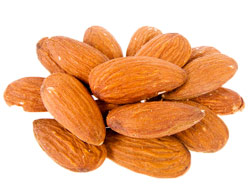
One of the common mistakes people make is to overeat nuts. You may experience weight stalling or even weight gain not because nuts will kick you out of ketosis but because they are calorie-dense and easy to overeat. 100 grams of macadamia nuts have over 700 kcal and over 70 grams of fat which is half of the energy intake for most people trying to lose weight.
This doesn’t mean you have to exclude nuts altogether. Nuts are particularly high in insoluble fibre which has zero effect on blood sugar. That’s why you shouldn’t worry about their relatively high totalcarb count.
How About Peanuts?
Peanuts are legumes which are avoided on a keto & primal/paleo diet for two reasons. Firstly, although they are relatively low in carbs, peanuts contain lectins and phytates which makes them hard to digest. Also, legumes in general have been linked to leaky gut syndrome, PCOS, IBS and Hashimoto’s.
7. Eating Too Much Dairy
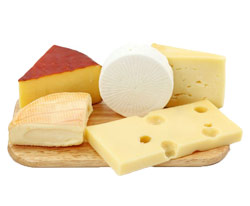
Full-fat dairy commonly eaten on a ketogenic diet is high in calories and easy to overeat. Also, dairy contains a specific type of protein that can lead to greater insulin spikes than meat.
If dairy makes your insulin spike, cut back on high-protein dairy products like cheese and yogurt. You can keep butter and cream, as these are relatively low in protein. If you have to avoid dairy altogether, try my free paleo diet plan!
8. Eating Too Many Low-Carb Treats
Although we all love low-carb treats, they are not suitable for weight loss, especially if you just started following a low-carb diet and need to get over your sugar addiction. Keto treats and low-carb sweeteners can all increase cravings and your appetite levels and you should minimise or even completely avoid eating them when you are trying to lose weight. If you have a sweet tooth, go for a piece of dark chocolate or a fat bomb.
9. Eating Products Labeled “Low-Carb”
Simply put: Eat real food. Avoid prepared meals full of additives and deceptive labelling. It’s no secret that low-carb products are often higher in carbs than they claim to be or contain unwanted additives. A common practice is to exclude all sugar alcohols and other sweeteners from the carb count. This is wrong as not all sugar alcohols and other sweeteners have zero effect on blood sugar. There are a few decent products you can use even on a keto diet but you have to be extra careful.
10. Drinking “Bulletproof” Coffee Every Day
There are a few reasons why I avoid drinking “bulletproof” aka butter coffee. It’s mostly fat and it’s very low in nutrients. While for some people it seems to suppress hunger, I wouldn’t personally drink it every day. I don’t know about you but I prefer to get my calories from real nutritious foods together with protein, vitamins and minerals.
Some of my readers have been experiencing weight stalling and once they ditched their bulletproof coffee in the morning, they started losing weight again. I make my own keto coffee that is way more nutritious and satiating.
11. Drinking Alcohol
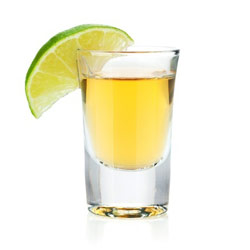
Alcohol is a no-no for those who are trying shed extra pounds. Apart from adding calories, alcohol has other disadvantages when it comes to weight loss. Even if there is no sugar in it, your body can’t store alcohol as fat – it has to metabolise it first. As a result, the fat-burning advantage of the ketogenic diet is diminished. Alcohol also increases appetite, dehydration and suppresses self-control – none of these are good for weight loss.
Lastly, alcohol converts in your body to acetate and if you use a breathalyzer to track your ketone levels, you will get inaccurate and artificially high results.
12. Snacking Too Much
If you follow a nutritious, low-carb or ketogenic diet, you shouldn’t need to snack. Unless you have hypoglycaemia issues, three main meals (or even less) a day should be enough. Here are a few simple rules:
- Don’t eat unless you are hungry, even if it means that you will skip a meal. In fact, once you get keto-adapted, you will find it easy to do intermittent fasting.
- If you feel hungry and need to snack, it means that your meals were not nutritious enough and you should increase your portion size. Lack of protein will make you hungry so make sure you eat enough of it.
- If you want to keep hunger at bay, eat real food: eggs, meat, fatty fish, non-starchy vegetables, fermented foods and some raw dairy. To learn more, you can check out my ketogenic food listand my keto food pyramid.
13. Not Planning Your Diet
Several studies have shown that planning and tracking your diet, as well as community support, can significantly improve weight loss and help you achieve your goals.

Planning your meals in advance will prevent excessive snacking and help you avoid binging accidents. This doesn’t mean that you will have to track your diet forever but it will help you avoid common mistakes, especially if you are new to the ketogenic diet.
We have created an iPad app that is designed specifically for low-carb, ketogenic and primal/paleo diets. To learn more about our apps, check out the KetoDiet App FAQ.
14. Relying Purely on Generic Diet Plans
Diet plans are great for those that are new to the diet. I created several free ketogenic diet plans that you can download and try. However, no diet plan or way of eating fits all. Although my diet plans are suitable for the vast majority of people, it doesn’t mean they will work for each one of you. You may need to make small adjustments or get a diet plan created specifically for you.
If you have any health condition or struggling to follow a diet plan, you will benefit from a diet plan that is made specifically for your needs, including the right energy intake, food sensitivities and other preferences. I have created a list of some of the best qualified low-carb & keto experts who can help you reach your goals.
If you just started following a low-carb diet and everything seems to be too overwhelming, my free diet plans will guide you through day by day.
15. Not Exercising Right
Not exercising at all or exercising too much are both counterproductive for weight loss on a keto diet. In a nutshell:
- Never use exercise to burn calories. This approach simply doesn’t work in the long-term. Studies show that excessive exercise leads to an increased appetite and you will likely eat more.
- Depending on your goal, choose the right type of exercise. Light cardio shows to have great health benefits, especially for the heart and brain. Weight training and HIIT are great tools for muscle growth and long-term weight loss.
- If you want to try carb-ups, make sure you read this post.
- Post-workout nutrition: Avoid eating foods high in fat and instead opt for foods high in protein.
16. Having Cheat Meals
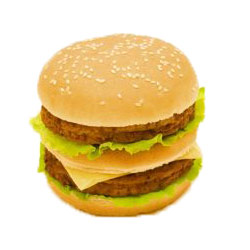
There is a difference between carb-ups and cheat meals. You can have a meal higher in carbs after HIIT. On the other hand, a cheat meal is completely different as it usually refers to eating anything from the “banned” foods.
Having regular cheat meals is a bad idea and counterproductive for your diet. I allow myself a couple of occasions per year when I eat almost anything I want. I don’t do it to “boost or restart” my metabolism but purely for social reasons.
17. Health Conditions
If you’re certain that you’re doing everything right and still can’t see the scales move, there may be a health issue you are not aware of. I know this first hand as I have Hashimoto’s.
Hypothyroidism or Adrenal Dysfunction
It only takes a blood test or a saliva test to find out if you have a thyroid or adrenal issue. If you have a thyroid issue, I highly recommend you read this book: Hashimoto’s Thyroiditis: Lifestyle Interventions for Finding and Treating the Root Cause – it has helped me tremendously and it’s a must-read for everyone with Hashimoto’s.
Contrary to what you may have read, low-carb diets don’t cause hypothyroidism or adrenal dysfunction. However, Dr Volek and Dr Phinney noted that there isn’t enough evidence that a very low-carb diet (such as less than 20 g net carbs) is beneficial for those with preexisting thyroid or adrenal conditions. I’ve had Hashimoto’s for several years (prior to going low-carb). I keep my net carbs at or above 30 grams and that works best for me.
Additionally, sex hormones can also affect your weight. While polycystic ovarian syndrome (PCOS) can be the culprit for women, men experience a decreased level of testosterone as they age. In these cases, it’s a good idea to consult a qualified expert.
Medications Causing Weight Gain
Certain medications, such as insulin injections, other diabetes medications and cortisone, are known to cause weight gain. Consult your doctor for possible alternatives.
Chronic Pain
If you suffer from chronic pain, it’s very likely your cortisol will also be high. This will impair your weight loss. Consult your doctor on ways to mitigate the effect and try to find ways to reduce stress.